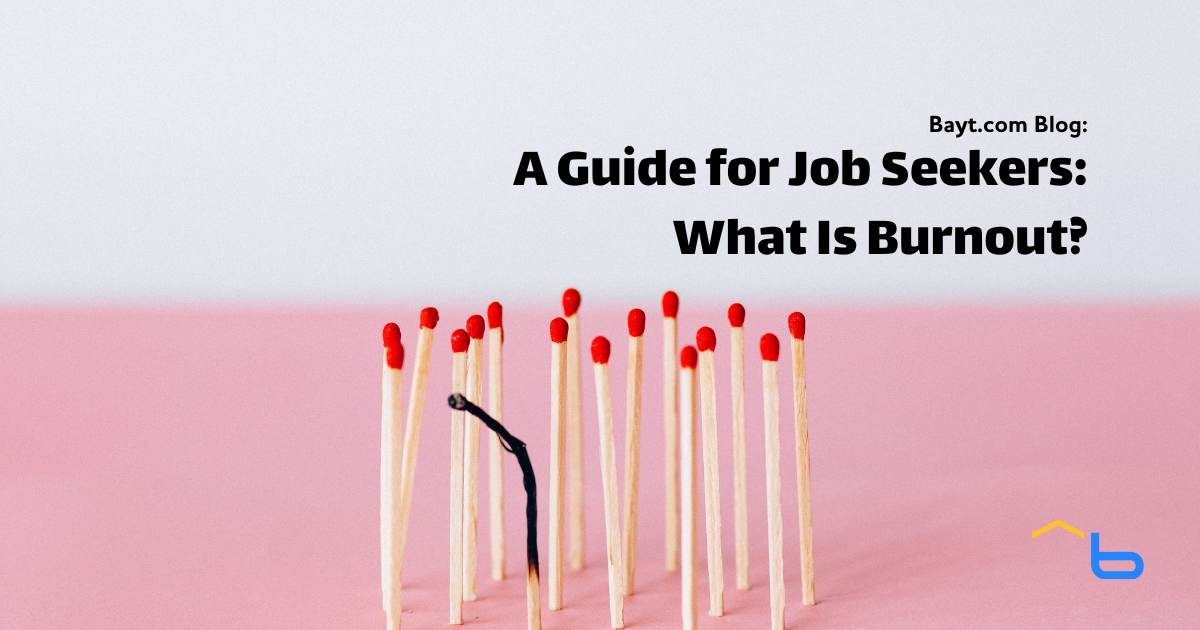
In today's high-pressure environment, burnout has become a common experience, especially for those actively seeking employment. The endless cycle of searching for opportunities, submitting applications, and handling rejections can take a toll on anyone's mental and emotional well-being. But what exactly is burnout? And how can you, as a job seeker, recognize and overcome it?
In this blog, we'll delve into the meaning of burnout, its signs and symptoms, and practical strategies to help you stay motivated and resilient throughout your job search journey.
What is burnout?
Burnout is a state of emotional, physical, and mental exhaustion caused by prolonged and excessive stress. It can happen when you feel overwhelmed, emotionally drained, and unable to meet constant demands. For job seekers, burnout often stems from the pressure of finding a job, managing financial concerns, facing repeated rejections, and dealing with the uncertainty of the future.
Signs and symptoms of burnout
Recognizing the signs of burnout early is crucial to preventing it from taking a deeper hold. Here are some common symptoms to watch out for:
- Emotional exhaustion: You feel drained, both mentally and emotionally, making it hard to stay motivated or enthusiastic about your job search.
- Reduced performance: Tasks that once felt easy—like writing cover letters or preparing for interviews—now seem overwhelming. You may find yourself procrastinating or struggling to concentrate.
- Cynicism and detachment: You start feeling pessimistic about your chances of finding a job. Negative thoughts like, “I’ll never get hired,” or “No one wants to employ me,” become more frequent.
- Physical symptoms: Headaches, sleep disturbances, changes in appetite, and frequent illnesses are physical manifestations of burnout.
- Loss of interest: Activities you once enjoyed, such as networking or learning new skills, no longer excite you. You may feel like giving up altogether.
If these symptoms sound familiar, you may be experiencing burnout. But don't worry; there are steps you can take to manage and overcome it.
How to overcome burnout as a job seeker
- Acknowledge your feelings: Recognize burnout when it happens. Accept your feelings of frustration or exhaustion as normal, especially in a tough job market. Acknowledgment is the first step toward healing.
- Set realistic goals: Instead of applying to every job, set manageable goals like 3-5 applications per week. Focus on quality, tailoring each application to increase your chances.
- Take breaks and practice self-care: Regular breaks and activities you enjoy are essential. Self-care keeps your mental health intact and prevents burnout.
- Build a support system: Share your journey with friends, family, or support groups. A support system provides emotional relief and keeps you motivated.
- Revise your approach: If your strategy isn’t working, try something new like direct outreach or networking events to diversify and reduce monotony.
- Stay organized: Track your applications and follow-ups using a spreadsheet or app. Staying organized reduces stress and gives you a sense of control.
- Focus on skill development: Use this time to learn new skills or improve existing ones, boosting your competitiveness and combating burnout.
- Practice mindfulness: Techniques like meditation, deep breathing, or journaling help manage stress, enhance resilience, and keep you focused on your goals.
Keep in mind that the process of finding a job is a marathon, not a sprint. It's okay to pace yourself, take breaks, and prioritize your mental health. Stay positive, stay persistent, and most importantly, take care of yourself. Your dream job is just around the corner! In fact, it might just be right here.
